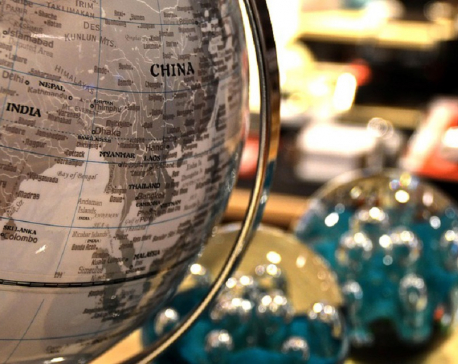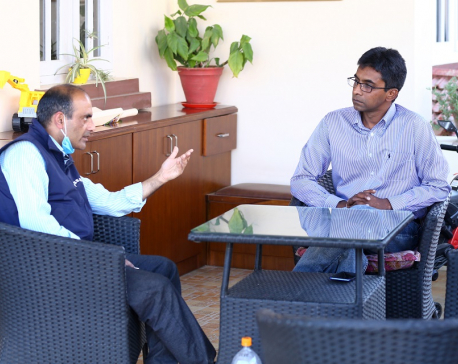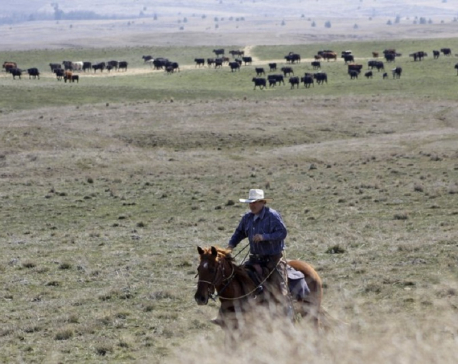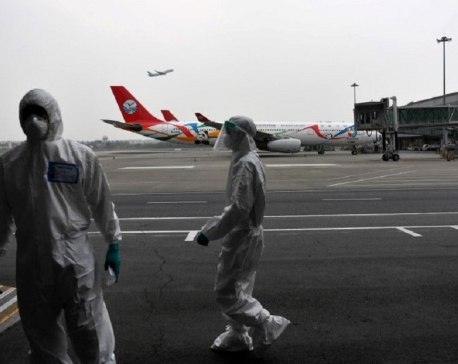
OR
Deglobalization and its discontents
May 19, 2020 16:00 pm
NEW YORK – Increasing global interconnection—growing cross-border flows of people, goods, energy, emails, television and radio signals, data, drugs, terrorists, weapons, carbon dioxide, food, dollars, and, of course, viruses (both biological or software)—has been a defining feature of the modern world. The question, though, is whether globalization has peaked – and, if so, whether what follows is to be welcomed or resisted.
World is changing
April 7, 2020 09:07 am
The casualty figures show no sign of stopping anytime soon. With the number of COVID-19 infected and deceased going up by the day, governments across Europe and North America are scrambling to put measures in place. At the same time, talks of how the world will look like after the containment of the virus are slowly starting to emerge. New York Times columnist Thomas Freidman writes that the world will now have a new historical divide, BC—before corona and AC—after corona—while acclaimed author Yuval Noah Harrari feels that in the post COVID world, people might have to forgo their privacy for the sake of their health. Many others have their own arguments.
No better option than lockdown to contain coronavirus infection: Dr. Jha
April 4, 2020 17:00 pm
KATHMANDU, April 4: Dr. Rajib Jha has said there is no better option than lockdown to contain coronavirus. Sharing the Chinese experience, Dr. Jha, who is also the Chairman of China-Nepal Medical Research Centre, reminded that Chinese people maintained such discipline that fully cooperated with the government to move to cope with the crisis.
Malaysia's reported new coronavirus cases rise by 140 to 2,766
March 31, 2020 15:50 pm
KUALA LUMPUR, March 31: Malaysia reported 140 new coronavirus cases on Tuesday, taking the total to 2,766, with 43 deaths.
Counties without coronavirus are mostly rural, poor
March 29, 2020 14:30 pm
SANTA FE, N.M., March 29: As the coronavirus rages across the United States, mainly in large urban areas, more than a third of U.S. counties have yet to report a single positive test result for COVID-19 infections, an analysis by The Associated Press shows.
China's Xi offers Trump help in fighting coronavirus as U.S. faces wave of new patients
March 27, 2020 14:09 pm
BEIJING/SHANGHAI, March 27: Chinese President Xi Jinping told U.S. President Donald Trump during a phone call on Friday that he would have China’s support in fighting the coronavirus, as the United States faces the prospect of becoming the next global epicentre of the pandemic.
Trending
Just In
- CPN (Unified Socialist) to hold its Central Committee meeting on May 10-11
- Over 16,000 paragliding flights conducted in one year in Pokhara
- MoPIT prepares draft of National Road Safety Act, proposes rescue within an hour of an accident
- Light rainfall likely in hilly areas of Koshi, Bagmati, Gandaki and Karnali provinces
- Customs revenue collection surpasses target at Tatopani border, Falls behind at Rasuwagadhi border in Q3
- Rain shocks: On the monsoon in 2024
- Govt receives 1,658 proposals for startup loans; Minimum of 50 points required for eligibility
- Unified Socialist leader Sodari appointed Sudurpaschim CM
















